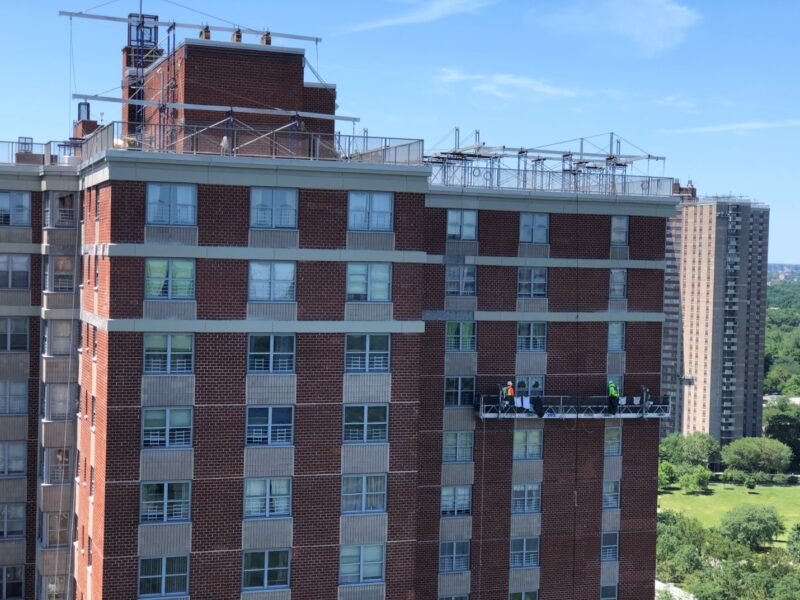Savannah, Georgia, is full of beautiful historic homes, making it one of the most desirable places to buy property in the southeast. Savannah, GA, has been named one of the best cities in which to buy real estate in the U.S., and if you’re looking to get started on that journey, then this guide should help you get your bearings and avoid some common pitfalls along the way. Whether you want to buy your first home or your 10th, learn how to make the most of your budget and find the perfect home for you and your family!
Property Buying Tips for the Savannah Real Estate Market
Save up for a Deposit
You’ll likely require a mortgage unless you’re independently wealthy or have won the lotto. Veterans Affairs (VA) loans are the only kind that permits no-money-down purchases. Every other type of loan calls for an upfront payment. FHA and conventional loans are the two most common mortgages, with down payments ranging from 3.5% to 10% of the property’s value.
Acquire a Qualifying FICO Score
FHA loans require a credit score of 620, whereas conventional loans with mortgage insurance require a score of 720. No mortgages will be offered to people with FICO scores below that threshold. A credit score as low as 620 is acceptable for a traditional loan without mortgage insurance, but you may expect to pay a steep premium.
Credit reports can be obtained by requesting a copy from your lender. Although you can get your FICO score online, doing so will cost you, and the results may differ from the score your lender uses. Lenders typically gather reports from all three major credit bureaus and use the middle FICO score in making lending decisions.
Keep Lender Ratios in Check
Lenders typically stipulate that a buyer’s front-end ratio should be at most 33%. In other words, your monthly gross income can’t be more than 33 percent of your PITI (mortgage payment plus tax and insurance). If your monthly income is $5,000, the most you can receive in PITI assistance is $1,650.
It takes a lot of work to calculate the ratio at the tail end. To do this, include all your monthly revolving loan installments and your PITI payment. You should aim to spend at most 41% – 50% of your gross monthly income on debt payments (exact figures will vary by loan type and lender). A mortgage insurance policy limits the maximum back-end ratio to 41%; therefore, a larger down payment may be required for loans with a higher back-end ratio.
Cost of Living in Savannah, GA
Savannah, Georgia, has a cheaper cost of living than the rest of the state by 1% and the rest of the country by 12%. The cost of homes for sale in Savannah, Georgia, is 34% lower than the national average, and the cost of utilities is lower by around 6%. The cost of groceries in Savannah, GA, is about 2% cheaper than the national average, and the cost of apparel is about 2% less.
There is an 8% premium over the U.S. average for medical and dental care services. On the other hand, Savannah is 2% less expensive overall when it comes to discretionary spendings, like eating out and getting a haircut. The median salary, after taxes, is $4151, which provides enough money to last 2.3 months. Among the finest places to live in the world, it is ranked at number 2300 (in the top 25%), while in the United States, it is ranked at number 580 and is Georgia’s third most livable city. Savannah is the 197th most populous city in the United States, home to an estimated 146k people.
An Overview of Savannah’s Real Estate Market
Over the past decade, Savannah’s population has grown by an average of 0.91 percent. In comparison, statewide averages of 0.97% and national averages of 0.69% were recorded during the same period. Savannah’s overall population growth rate was 8.18 percent over those ten years, higher than the 8.75 percent growth rate in Georgia and the 6.2 percent growth rate in the United States.
Right now, homes for sale in Savannah can be purchased for an average of $151,500. In contrast, the national median market value is $204,900, while the statewide median value is $166,800. In the past decade, prices of homes for sale in Savannah have increased by 0.7% each year. During that period, the annualized rate of rise in home value across the state averaged 0.05 percent. Home prices increased by an average of 0.13 percent annually across the country.
Savannah has a gross median rent of $977, which is lower than the state and national median of $968 and $1,023, respectively.
Factors to consider when Investing in Property in Savannah, GA
Property Appreciation Rate
Property appreciation rates are an early indicator of a city’s real estate market’s safety and stability. You need to know that your investment will consistently appreciate each year. Having data that shows property values have been rising steadily over time can give you confidence in the success of your investment predictions. Due to slowing expansion, you likely have to drop that location from your portfolio.
Growth in Population
Due to a declining population, the pool of potential tenants for your rental property may shrink over time. When population growth is slow, homes for sale in Savannah prices and rents go down. Fewer people paying taxes means less money for maintaining schools, roads, and police protection. You shouldn’t be competing in a market with a low or declining population. You want consistent annual population growth, just like you want annual property appreciation. Investment metrics over the long and short term benefit from a growing population.
Property Taxes
You must pay your fair share of property taxes. Locations with excessive property taxes must be disregarded. Tax rates are difficult for authorities to cut. A community’s documented property tax rate rise may indicate broader economic weakness.
In some cases, a property’s assessed value may be too high. In that case, you can hire a professional from one of the best property tax protest businesses in Savannah, GA, to argue your case before the appropriate authorities and, hopefully, have your property’s assessed value reduced. However, the expertise of Savannah property tax attorneys is essential in complex instances that require litigation.



